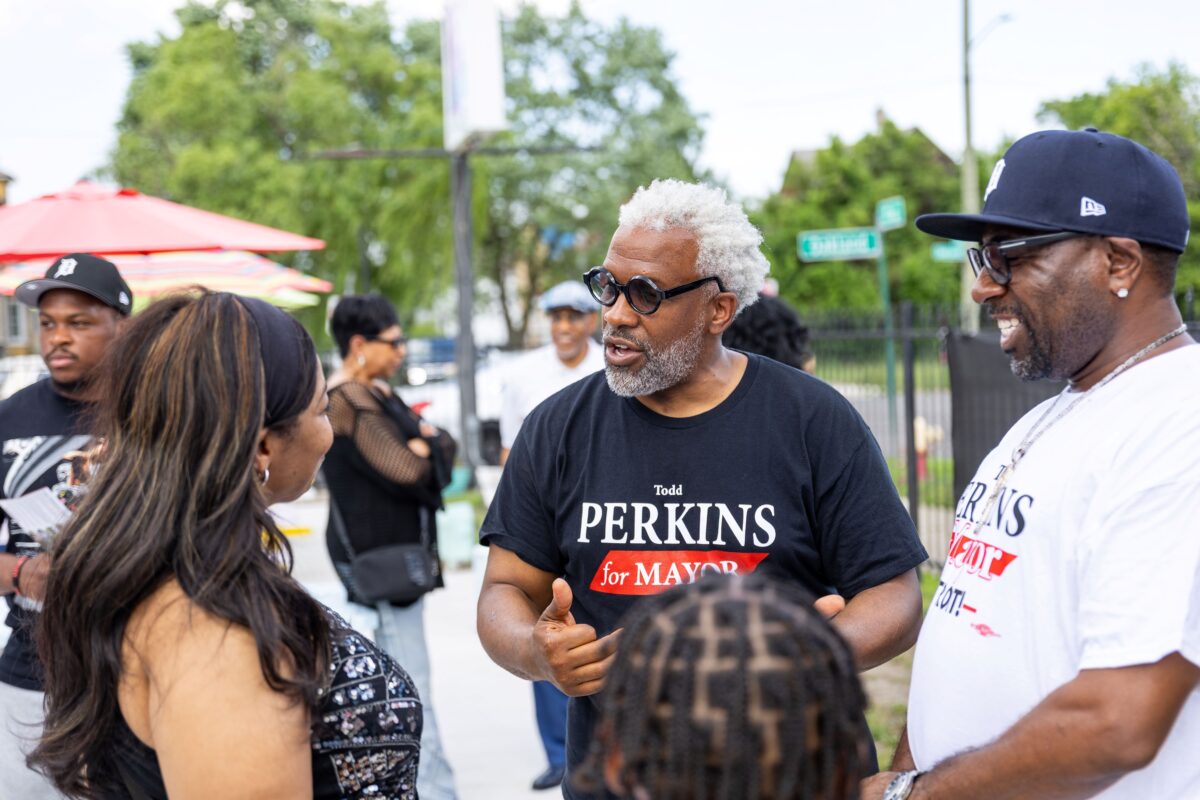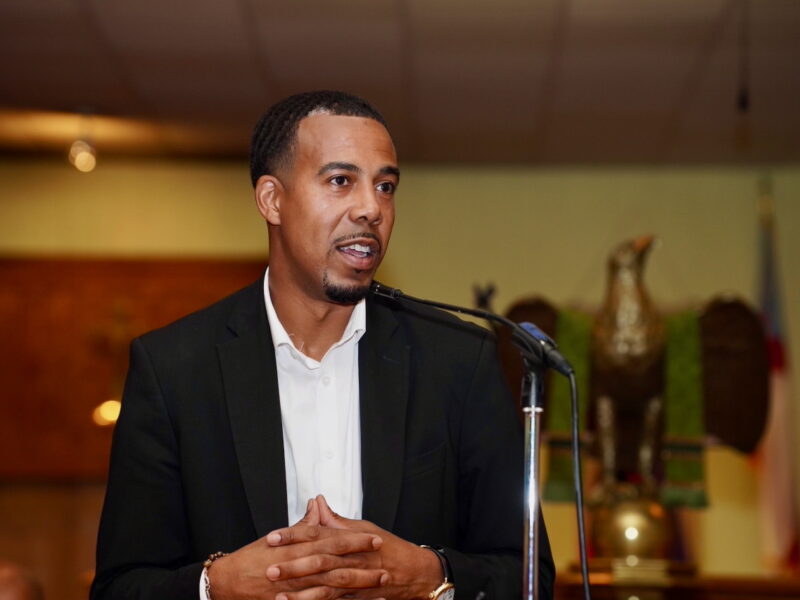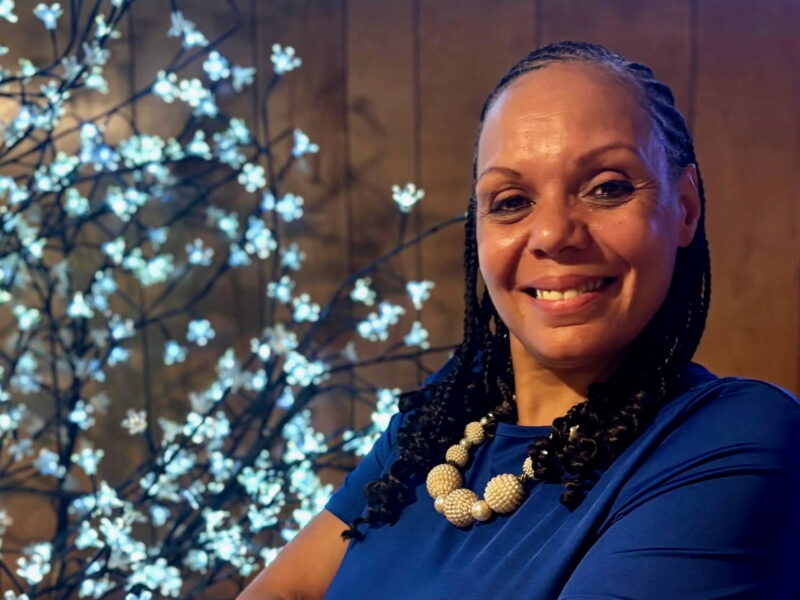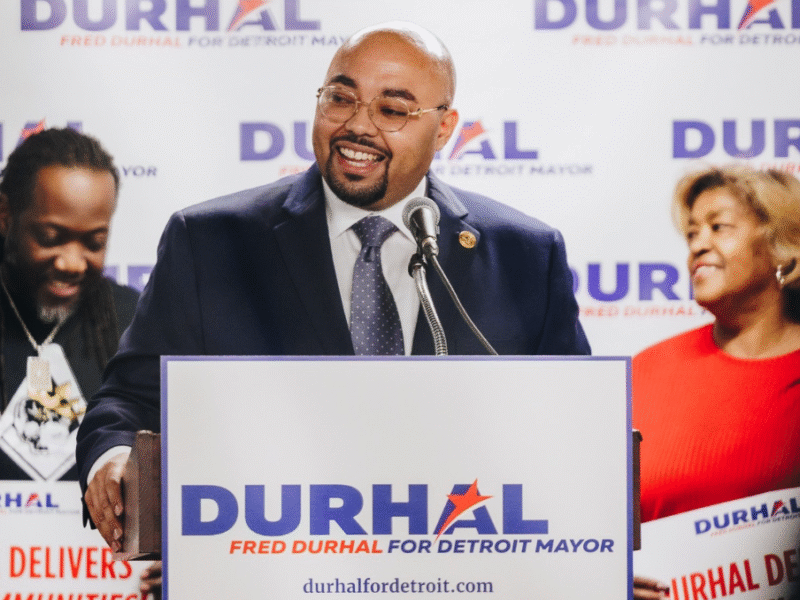Overview:
-"We're going to be a city that's environmentally conscious," says Detroit mayoral candidate Todd Perkins.
-Perkins is open to other utility providers for Detroit beyond DTE Energy.
-The attorney says he would use Detroit police to ensure that ICE does not violate Constitutional rights.
Attorney Todd Perkins, a candidate for Detroit mayor in Tuesday’s primary election, grew up in the North End and is a graduate of University of Detroit Jesuit High School, Dartmouth College, and the University of Detroit Mercy
He is the founder and owner of The Perkins Law Group; leads a nonprofit, The People’s Voice; and is the founder and operator of Kilimanjaro Sports Management.
Perkins spoke with Planet Detroit ahead of the election about the environment and public health challenges the city faces. This interview has been edited for brevity and clarity.
As mayor, how would you balance economic development with environmental impact? For example, the new Stellantis plant on Mack Avenue opened under Mayor Duggan quickly created new air pollution issues for east side residents.
“You would think that any major project that’s being built in current times would have that environmental consideration and component included in any development,” Perkins told Planet Detroit.
“It almost seems as though we’re so thirsty as a city for development that we’re willing to forsake the individuals who are directly impacted, which are residents.”
Environmentally conscious, healthy growth is a requirement for corporations that want to build in Detroit, he said. “I want to do something unique as a mayor,” he said, naming City Councilmember Scott Benson as an advocate for a greener Detroit and stating he would name Benson as an ambassador.
“We’re going to be a city that’s going to be environmentally conscious,” and a city that’s focused on the health of its residents, Perkins said.
What is your stance on Detroit’s air quality and the issue of cumulative impact?
“One, I would want to dissipate that,” Perkins said, adding that if the money were available, he’d like to move residents away from pollution, “where these people are leaving because we’re giving them … truly enough money to move.”
He noted the pollution in Southwest Detroit affects neighboring cities too.
“If I have a business that is interested in coming and they have a proposal, I need to talk to the people who understand, not those people who present the business, but third parties who understand what impact it’s going to have, and whether or not there are alternatives in the development of that particular business that are less injurious to our society.”
We’re seeing a rollback of pollution standards under the Trump administration. Do you see a role for the city to play if the federal government is pulling back on clean air rules — as well as working with Michigan’s Department of Environment, Great Lakes, and Energy?
The rollbacks in pollution regulations are “draconian,” Perkins said. “It just doesn’t factor in the, the the health of our nation and the health of our people, and we’ll pay for that” in medical and societal costs, he said.
The city can demand clean air when negotiating tax abatements for businesses, the attorney said.
“The city of Detroit is well within its right to dictate how we will provide our resources for the development of these projects.”
What would your approach be to Detroit’s Sustainability Department and its funding?
The Office of Sustainability has a trickle-down effect “that doesn’t exist with the DEGC or the DDA,” Perkins said. “Sustainability has much more upside and potential if used properly.”
The candidate said he would focus on maintaining the department and energizing it with additional revenue and resources, and said there are public-private partnerships and public interests that would go down this path with the city.
How can the mayor address the issue of utility affordability with DTE Energy and DWSD?
First, waste at the utilities for which the consumer pays, such as loss of water, must be cut, Perkins said.
He said he spoke with people affected by the Southwest Detroit water main break that occurred earlier this year. The incident “should have never happened had they been paying attention to the system like they’re paying attention to other areas, and providing the proper maintenance,” he said.
A “push and pull” exists between the Great Lakes Water Authority and the Detroit Water & Sewerage Department, he said. The city comprises 25% of the authority’s user base but pays 40% of its operating costs, he said.
For DTE Energy, the city needs to focus on obtaining grant money and partnerships to upgrade residents’ homes to save on utility costs, Perkins said.
“I am not an anti-business guy. I think I have that veneer from a lot of people.”
At the same time, DTE’s rate increases need to incorporate Detroit’s median income and other factors specific to the city, he said. Perkins said he would approach DTE to work on helping residents, and if he were unsuccessful, he would pursue another form of utility or another provider like Consumers Energy.
“Let’s use the free market like they always like to use against us. Let’s use the free market concept and entertain the idea of, you know, DTE not necessarily being the exclusive provider in the city of Detroit.”
How would you address Detroit’s growing flooding problem? What can the mayor do to help?
Flooding is an infrastructure problem, Perkins said, that requires asking the federal government for funding assistance.
“And I know that it may not sound like it’s the climate to do so, but you know, nothing beats a fail but a try,” he said. “And I intend to work with the Trump administration — whomever is president, you know. On behalf of my city, I’m going to ask a lamppost for help.”
The flooding issue could alienate Michigan, a state Trump won in 2024, and Detroit can demonstrate its need and the cost of not fixing the problem, Perkins said. In addition to the state and federal government, Detroit will need private partnerships and big business to fix its infrastructure, he said.
“It’s not going to work without them being involved.”
MORE FROM PLANET DETROIT
Detroit mayoral candidate Jonathan Barlow on balancing development, environment: ‘Before they get, they have to give’
By the time a Detroit economic development project reaches the community benefits stage, it’s too late to secure environmental protections, says mayoral candidate Jonathan Barlow.
Lifelong Detroiter DaNetta Simpson’s priority in mayoral campaign? ‘Neighborhoods.’
DaNetta Simpson, who is running for Detroit mayor for the third time, is a lifelong resident with a plan for a city insurance program to address home repairs and blight.
Fred Durhal III on fixing Detroit’s flooding problem: ‘I’ll be very aggressive’
“It’s going to take a lot of funding,” Detroit mayoral candidate Fred Durhal III says of upgrading the city’s infrastructure to combat flooding.
What’s your stance on ICE enforcement in Detroit and the city’s friendliness to immigrants overall?
Perkins opposes naming Detroit as a sanctuary city, as he said the name creates a caustic environment.
“That doesn’t mean that we can’t act friendly, you know,” he said. “They go after those cities, and they’re coming after us anyway, being a heavily Democratic area. They’re coming.
Perkins would use the Detroit Police Department to ensure that ICE is not violating Constitutional rights, he told Planet Detroit.
“I don’t care if you’re not a citizen, you’re still on U.S. soil, and you’re entitled to some Constitutional protections and also some services. I’m going to demand that the federal government provide services that allow for translation, because if a person doesn’t understand you, that’s akin to no representation at all, no matter what happens.”
As a Constitutional lawyer, Perkins said he’ll protect the rights of anyone in the city.
We have a lot of institutions in Detroit that receive federal dollars to help with substance recovery and mental health services. Do you see the city of Detroit potentially budgeting funds to make up the difference if we start seeing severe cuts to those services?
Partnerships can be created and embraced even more with the Detroit Wayne Integrated Health Network, Perkins said, or DWIHN.
“DWIHN has money, and it’s funded. That’s the main source of funding for mental health services.”
The city can also lobby on behalf of nonprofit organizations that are substantial in the community and life-changing for many residents, he said.
“The city of Detroit doesn’t create jobs. What we do is create an atmosphere where jobs will tend to be created,” Perkins said, adding that he would pursue partnerships to fill funding gaps.
“If you have a city that’s designed and intentional about making sure that the most affected and the most vulnerable of our citizens are to be protected, that atmosphere can be created.”
Any thoughts on what the city can do about extreme heat for residents?
Detroit has many facilities that can extend hours as cooling facilities, Perkins said, naming libraries as places that offer an educational component and safety.
“It has been a bear,” he said of this summer’s temperatures. Extended hours at cooling facilities are “an immediate sort of Band-Aid,” he said, adding that more solutions are needed, including air conditioning inspections at senior facilities.
“The immediate fix is using our public facilities to extend hours and make places for people to congregate and enjoy a cool spot until, 8, 9, or 10 p.m. when it does cool down,” he said.
“A lot of these people who are anti-global warming, their mouths have been shut in the past four or five years, haven’t they?”





